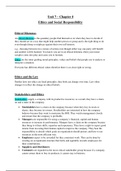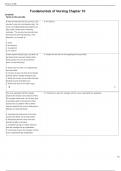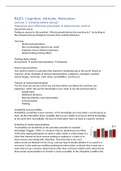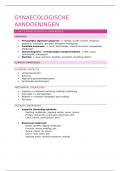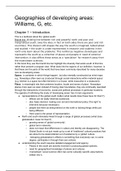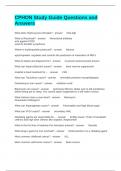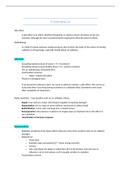Unit 7 – Chapter 4
Ethics and Social Responsibility
Ethical Dilemmas
An ethical dilemma is the quandary people find themselves in when they have to decide if
they should act in a way that might help another person or group and is the right thing to do
even though doing so might go against their own self-interest.
e.g., choosing between two courses of action even though either way one party will benefit
and another will be harmed. You know you are in an ethical dilemma when your moral
scruples come into play and cause you to hesitate.
Ethics are the inner guiding moral principles, values and beliefs that people use to analyse or
interpret a situation.
Everyone has different ethical values therefore there is no clear right or wrong.
Ethics and the Law
Neither laws nor ethics are fixed principles, they both can change over time. Law often
changes to reflect the change in ethical beliefs.
Stakeholders and Ethics
Stakeholders supply a company with its productive resources; as a result, they have a claim
on and a stake in the company.
• Stockholders have a claim on the company because when they buy its stock or
shares, they become its owners. Stockholders are interested in how the company
behaves because they want to maximise the ROI. They watch management closely
and ensure that the company is profitable.
• Managers are responsible for using a company’s financial, capital and human
resources to increase its performance. Mangers have a claim on the company because
they bring to it their skills, expertise and experience. They have a right to expect good
returns from investing their human capital to improve the company. They bear the
responsibility to decide which goals an organisation should pursue, and how to use
resources in the most efficient way.
• Employees expect to be rewarded for they consistent work. This can be done by
creating an occupational structure that fairly and equitably rewards employees for
their contributions.
• Suppliers and Distributers
• Customers are regarded as the most critical stakeholder group because if a company
cannot attract them to buy its products, it cannot stay in business.
Ethics and Social Responsibility
Ethical Dilemmas
An ethical dilemma is the quandary people find themselves in when they have to decide if
they should act in a way that might help another person or group and is the right thing to do
even though doing so might go against their own self-interest.
e.g., choosing between two courses of action even though either way one party will benefit
and another will be harmed. You know you are in an ethical dilemma when your moral
scruples come into play and cause you to hesitate.
Ethics are the inner guiding moral principles, values and beliefs that people use to analyse or
interpret a situation.
Everyone has different ethical values therefore there is no clear right or wrong.
Ethics and the Law
Neither laws nor ethics are fixed principles, they both can change over time. Law often
changes to reflect the change in ethical beliefs.
Stakeholders and Ethics
Stakeholders supply a company with its productive resources; as a result, they have a claim
on and a stake in the company.
• Stockholders have a claim on the company because when they buy its stock or
shares, they become its owners. Stockholders are interested in how the company
behaves because they want to maximise the ROI. They watch management closely
and ensure that the company is profitable.
• Managers are responsible for using a company’s financial, capital and human
resources to increase its performance. Mangers have a claim on the company because
they bring to it their skills, expertise and experience. They have a right to expect good
returns from investing their human capital to improve the company. They bear the
responsibility to decide which goals an organisation should pursue, and how to use
resources in the most efficient way.
• Employees expect to be rewarded for they consistent work. This can be done by
creating an occupational structure that fairly and equitably rewards employees for
their contributions.
• Suppliers and Distributers
• Customers are regarded as the most critical stakeholder group because if a company
cannot attract them to buy its products, it cannot stay in business.

